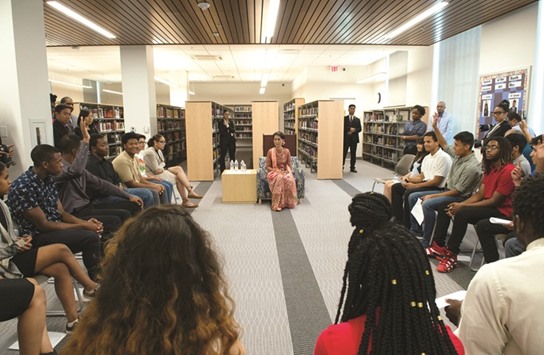The army controlled Myanmar for half a century in a brutal reign rife with rights abuses, including allegations of torture, rape and recruiting child soldiers.
Although it has loosened its grip since ceding power to a quasi-civilian government in 2011, the army seldom admits to misconduct among its troops.
The sentencing handed out by a military court on Thursday suggests the Tatmadaw, as it is known, is looking to revamp its image as the country hurtles toward democracy and opens up to the West.
“Seven Myanmar army soldiers are sentenced to five years for killing local people in Mong Yaw village in Lashio township, Shan State,” the military said in statement on Facebook. “They all have to be sentenced to five years with hard labour in country side prison.”
The five villagers were killed in June after skirmishes between ethnic rebels and soldiers around Mong Yaw in northeastern Shan State – one of many regions riven by decades-long insurgencies.
Locals accused the officers of murder after their bodies were found buried in shallow graves several days later.
The military said that four of the jailed were officers.
The country’s new civilian leader, democracy activist Aung San Suu Kyi, has made ending the ethnic warfare a top priority since her party took power in March following landmark polls.
But bringing peace to the country’s borderlands will ultimately depend on the military, a powerful player that still controls key government bodies.
On Wednesday, US President Barack Obama vowed to lift decades-old sanctions, imposed when the former military junta was in power, during a visit by Suu Kyi to the White House.
While details are still unclear, the move will likely scrap the blacklist that bars Americans from doing business with more than 100 military leaders, their companies and so-called cronies.
Conglomerate Asia World, blacklisted for alleged ties to Myanmar’s military, welcomed Obama’s pledge to lift sanctions.
“AWC (Asia World Company) expects to see a stronger economic growth and foreign investments in Myanmar with the removal of the sanctions,” the company said by e-mail.
Activists have condemned the move however, saying it removes a key lever for applying pressure on the army.
Last year the deaths of two ethnic Kachin teachers triggered public outrage, as activists accused soldiers of raping and murdering the pair in the village where they worked in Shan State.
No one has yet been charged with the killings.
Suu Kyi has urged businesses to invest in the Southeast Asian country as a way to advance its democratic transition.
Suu Kyi, speaking in Washington, said that economic development spurred by foreign investment was needed to show the impoverished nation of more than 50mn people that democracy could improve their livelihoods and promote further change.
“Economic success is one of the ways that we can persuade everyone in our country, including the military, that democracy is the best way forward for our union,” Suu Kyi told a dinner of business officials, diplomats and government officials hosted by the US Asean Business Council.
“In order to make the political transition work, we have to have the economic expectations of our people fulfilled as well,” she added.
“In some ways it is a risk, it as much a political risk as an economic risk, because there are those who believe it is not yet time for us to remove the sanctions, but we think that it is time now for our people to depend on themselves, to go forward with the help of our friends,” Suu Kyi said of the decision.
Sanctions were imposed on the country, formerly known as Burma, in 1997 after decades under a military dictatorship that stifled dissent and showed little regard for human rights.

